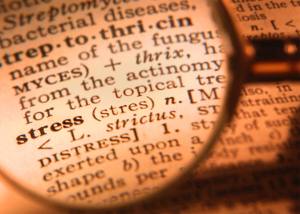MINDFULNESS COUNSELING

We know that everyone experiences negative or unwanted emotions or thoughts from time to time. Sometimes our unwanted emotions are situational – we lose a loved one, someone is hurtful toward us, we have too much work on our plate, etc. Other times, unwanted emotions or thoughts emotions don’t seem to arise from any place in particular – no matter where we are, we find ourselves worried, nervous, sad, or lost, and caused to think about things we’d really rather not.
Typically, we try to “fight them off.” Well-meaning friends and loved ones may even try to help us by telling us things like, “It could be worse” or “Don’t let life get you down.” Ironically, sometimes all of the fighting we’re doing just makes things worse.
For example, if we’re anxious, and we’re repeatedly telling ourselves, “Stop being anxious!” or “I can’t be anxious! I can’t let this keep me down!”, the problem compounds itself because, of course, we are anxious. Whereas initially we were simply anxious about the initial event, now we are anxious about our anxiety. That’s no fun!!!
Before we know it, we’re 10 minutes, 10 hours, 10 days, 10 months, or 10 years into the future forecasting our own doom. Or, we’re lamenting all of the time we’ve wasted doing all of this worrying, so we’re in the past! And we’re feeling worse than ever. Fighting it off doesn’t always work.
Some of us have realized that fighting it off often doesn’t work. The thoughts or emotions inside us are just too powerful. So, we acquiesce, and engage the thoughts. We comb over them, we analyze them, we hold them up to light and see if we can get a clearer picture. The prevailing line of thinking for this approach is, “If I just think about this long enough, I’ll understand it better, and my unwanted thoughts or emotions will naturally dissipate.”
While there may be some minor disturbances for which this rings true, most of us who’ve gotten to this point find this approach to make matters much, much worse. It stands to reason that if our unwanted emotions and thoughts were making us uncomfortable when we were trying to fight them off, they will make us all the more uncomfortable if we choose to deliberately focus on them. As a matter of fact, most of us find that we begin to become consumed by them, and as soon as it dawns on us how often we’re spending time dwelling on them, we start fighting them off again. The cycle starts all over.
So, instead of fighting them off, and instead of engaging them, is there another way???
Mindfulness

By becoming more aware of this process, you can gain the ability to take a more active role in observing the messages you’re receiving without fear, anxiety, or judgment. In short, you learn that your thoughts are…just that – thoughts! At times they may be truthful and helpful, and at others less so. But again – they are just your thoughts, and therefore, not worthy of allowing to rule your life.
The more we’re able to realize this sort of thing, the more we find ourselves able to a) recognize, and b) acknowledge and value whatever thoughts come into our minds, while c) learning not to get bent out of shape about them. Just like a young child can be completely absorbed in play, living each moment to its fullest, we too learn to be more fully present and thus, less absorbed in our own thoughts and motivations. We learn to be free!!
Need some guidance with all of this? We can help!
Our therapists aren’t just expert counselors – they’re agents of change! They can help you reduce your anxiety by improving your thinking, helping you adjust areas of wellness, and guiding you through practices of meditation and mindfulness.
Looking for help with mindfulness in St. Louis or St. Louis Mindfulness Counseling?
Message Us at contact@changeincorporated.org
Or use the form below — there’s no pressure.
Call Us
(314) 669-6242
ST. LOUIS COunseling Locations
NOW IN ONE EXPANDED & IMPROVED LOCATION TO SERVE YOU BETTER!
Change, Inc. South Hampton & 44:
3460 Hampton Avenue, Suite 204
St. Louis, MO 63139
PHONE/EMAIL HOURS:
Monday through Friday // 9a to 3p
Saturday // 12p to 3p
Contacts received before 3pm:
- returned the same business day
Contacts received after 3pm or on the Sundays:
- returned the next business day
314-669-6242 / 877-5-CHANGE (524-2643)
contact@changeincorporated.org
COUNSELING HOURS
7 DAYS PER WEEK:
10am to 9pm
